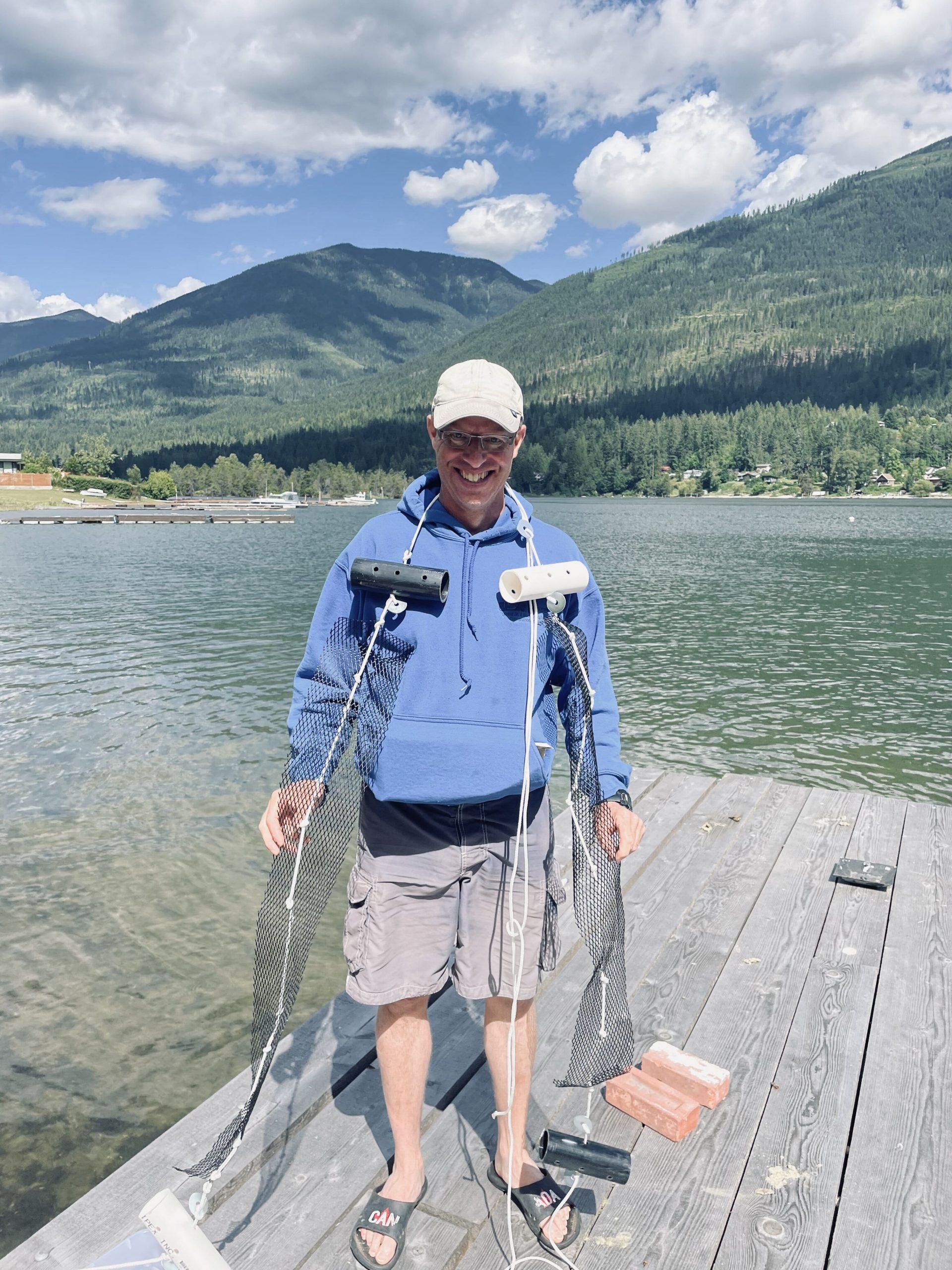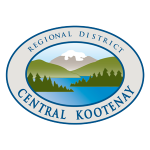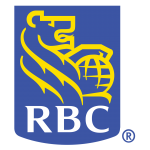Muscling up capacity for invasive mussel prevention

Trevor Allegretto, a volunteer community scientist, standing on a dock on Kootenay Lake holding a substrate sampling device.
Summertime boating for some has become synonymous with the Clean Drain Dry program. It empowers recreational lake users to avoid spreading harmful aquatic invasive species (AIS) to waterways across the country.
The AIS of top concern are zebra and quagga mussels; these haven’t been detected in B.C., Alberta, Saskatchewan, or the northern territories. Not yet. And Living Lakes Canada aims to keep it that way. Since these invasive mussels are almost impossible to fully remove from aquatic ecosystems once established, prevention is the cure. In the West Kootenay region of B.C., Living Lakes Canada is partnering with the Central Kootenay Invasive Species Society (CKISS) to support invasive mussel monitoring efforts and aid in prevention efforts.
Living Lakes’ National Lake Blitz Program Coordinator Camille LeBlanc has been working with Kootenay Lake CKISS volunteers to install early invasive mussel detection devices. Kootenay Lake is the fifth largest freshwater lake in B.C. and plays a fundamental role in contributing to the health of its surrounding ecosystems, communities, economies and tourism industry. Training of appropriate monitoring protocols is also provided.
“The goal is to increase data points and monitoring locations on Kootenay Lake. Using private docks is ideal because it is easier for volunteers to check samplers. Private docks are also more secure than using a public dock or wharf,” says Camille.
Zebra and quagga mussels pose a risk to native biodiversity in various ways including impacting the availability of phytoplankton and zooplankton which form the basis of aquatic food webs. These small and quickly reproducing mussels can cause costly blockages in municipal and agricultural water systems. They also greatly impact recreational water activities as they leave shorelines littered with their sharp shells and colonize exposed boat surfaces and water intakes.
According to the Invasive Species Strategy for British Columbia, “it’s estimated that the economic impact of invasive mussels to hydropower, agricultural irrigation, municipal water supplies and recreational boating could cost $43 million per year… This estimate does not include additional impacts on commercial and recreational fisheries.”
Living Lakes Canada’s substrate samplers have been installed on docks along the western arm and main body of Kootenay Lake and volunteers are performing biweekly checks on these devices from July through October. As part of their training, they learned to identify zebra and quagga mussels at their different life stages and know to inspect the devices closely since the mussels can be difficult to spot in their juvenile and young adult stages. All observations are recorded and if volunteers note any signs of the mussels they know to report them immediately.
Partnering with CKISS on this substrate sampler program is an arm of Living Lakes Canada’s National Lake Blitz program. This work focuses on capacity building for B.C. stewardship groups and the development of a national template for community water stewardship and aquatic invasive species prevention. The Lake Blitz is a Canada-wide citizen science monitoring initiative. The program encourages the widespread monitoring of lakes using tools so simple that anyone can get involved and start to understand the impacts of climate change on freshwater lakes. Currently, over 350 volunteers are monitoring lakes from coast to coast and uploading their data to the Lakes Observations Map.
The substrate sampler project is supported by the Regional District of Central Kootenay through the Kootenay Lake Local Conservation Fund and RBC Tech For Nature program.


If you find mussels that you suspect are invasive in B.C. please contact the Report All Poachers and Polluters Hotline: 1- 877-952-7200 (RAPP)
For more information about reporting other invasive aquatic species in B.C., visit the Province of BC website:
If you’re interested in invasive mussel monitoring, watch this video and get in touch with your local Invasive Species Organization to get involved:





